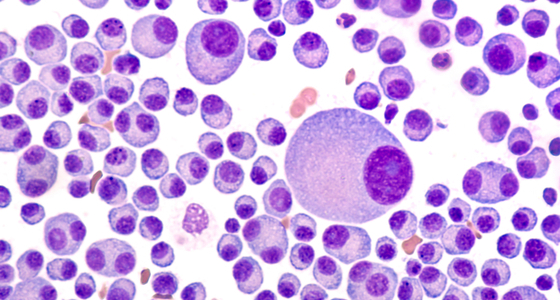Many people are unaware that there are approximately 7,000 identified rare diseases that affect about 25 million people in the United States.
Rare diseases are considered orphan diseases when fewer than 200,000 people are affected. Many orphan diseases are genetic disorders. Gaucher disease is one of these genetic disorders.
Gaucher disease, named for the French physician who first described the symptoms in 1882, is an inborn metabolic disorder. Patients born with the disease cannot produce an enzyme called glucocerebrosidase, which helps break down a specific complex lipid, glucocerebroside. If the body cannot break down this lipid, it builds up in body tissues, including the spleen, liver, bone marrow, lymphatic system, lungs, skin, eyes, kidneys, heart and the nervous system.
For a person to develop the disease, they must inherit an abnormal gene from each parent. Gaucher disease affects about one in every 40,000-60,000 people worldwide. The disease is especially common in those of Ashkenazi (Eastern and Central European) Jewish ancestry, where it affects one in every 450-1,000 people.
Not all people with Gaucher disease display the same symptoms. In fact, there are three types of Gaucher disease. Type 1 Gaucher disease is the most common form of the disorder. Patients may develop skeletal abnormalities, enlarged spleens, extreme fatigue, anemia and nosebleeds. Some patients are diagnosed as children, while others don’t develop symptoms until age 50 or 60.
Type 2 Gaucher disease afflicts children. Unlike type 1, it causes severe neurological symptoms and usually leads to death within the first three years of life.
Type 3 Gaucher disease usually begins in childhood or adolescence. While it does cause neurological problems, they are typically not as severe as those caused by type 2, and the symptoms develop more gradually.
Gaucher disease can be diagnosed through genetic testing or a blood test that evaluates a specific enzyme level. Most people from vulnerable populations often get tested to see if they carry the abnormal gene, which could be passed on to their children. if someone is diagnosed with Gaucher disease, enzyme replacement therapy (ERT) is highly effective in most patients with type I, and treats some of the symptoms of type 3. ERT decreases liver and spleen size, reduces skeletal anomalies, and successfully reverses other debilitating symptoms of the disorder, including abnormal blood counts and fatigue.




